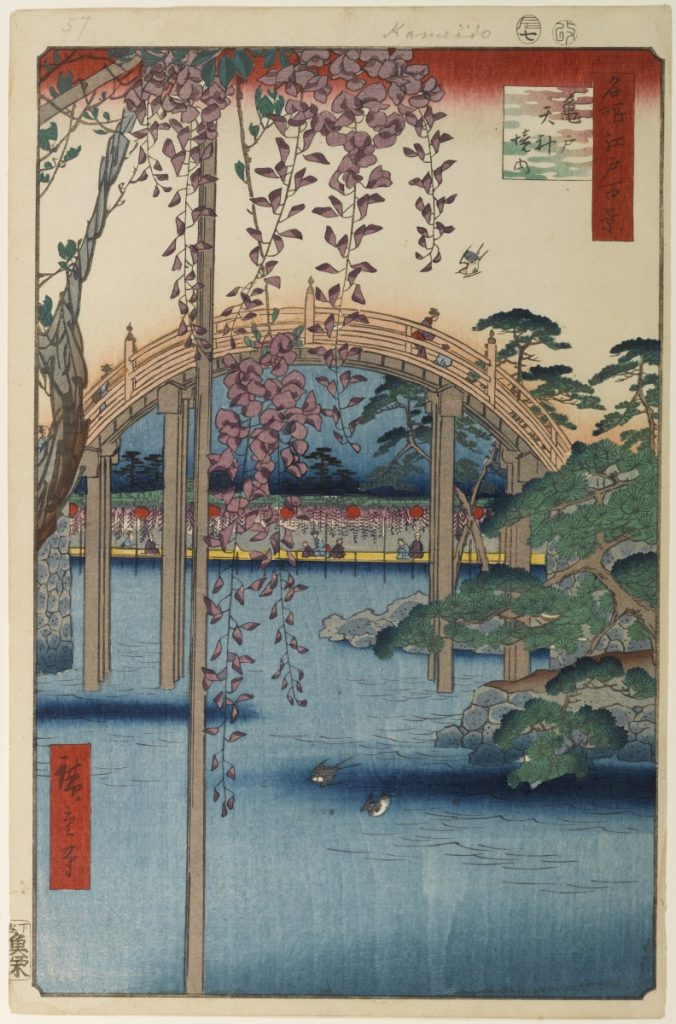
Haiku is a poetic genre that originated in Japan in the 17th century and saw its greatest flowering in the Edo period (1603-1868), when numerous poets including Matsuo Bashō, Kobayashi Issa, Yosa Buson and, later, Masaoka Shiki himself used it to describe nature and human events directly related to it.
Beyond its metrical characteristics, haiku is characterised by the presence of logical leaps that it can be seen as a form of anti-syllogism. In fact, the juxtaposition of images and moods creates a metaphor for the depth of existential experience’, in an attempt to express, verbally, the process of achieving Buddhist enlightenment, which coincides with the realisation of the emptiness and interdependence of all physical and psychic phenomena.
Below is a small selection of some haiku.
Silence
Matsuo Bashō
penetrates the rock
a song of cicadas
The first snow!
Matsuo Bashō
just to bend the
asphodel leaves
Having fallen ill while travelling
Matsuo Bashō
my dream still runs
here and there in the bare fields.
sadness:
Kenishi Gonsui
among the voices of insects
a lonely nun
I will look at the moon
Uejima Onitsura
without my son on my lap
this autumn
the flower has fallen
Yosa Buson
it remains the image
of the peony
heat:
Kobayashi Issa
in my eyes still trembles
a laughing face
Please leave a haiku of your own in the comments.
